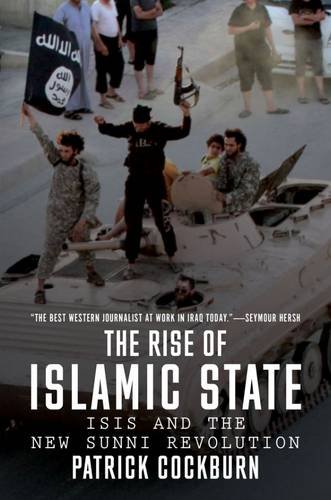◄►◄❌►▲ ▼▲▼ • B下一个新评论下一个新回复了解更多
Double standards have notoriously marked Britain and America’s response to the Arab Spring. But nowhere is the hypocrisy more glaring than in their reactions to the uprisings in Bahrain and Syria, where both countries’ governments have used the full might of their security forces to crush peaceful protests and jail and torture their opponents.
When it comes to Syria, Barack Obama and David Cameron express shock at the government’s repression and are voluble in their demands for regime change. Until recently, military intervention was not being ruled out. Contrast this with the words of President Obama’s spokesman after clashes between protesters and security forces in Bahrain last week. The best he could do was a purportedly even-handed condemnation of violence “directed against police and government institutions” and “excessive force and indiscriminate use of tear gas against protesters” by the Bahrain security forces. Imagine what an uproar there would be if the White House had said the same about Libya or Syria.
Asked about Bahrain, Cameron and William Hague give its government the gentlest slap on the wrist for human rights abuses and stress the seriousness of the reform programme being implemented by the al-Khalifa monarchy, which enjoys total power on the island.
The Bahraini claim to be carrying out radical reform is convincingly discredited in a report by Amnesty International published yesterday. It concludes: “Despite the authorities’ claims to the contrary, state violence against those who oppose the al-Khalifa family rule continues. In practice, not much has changed in the country since the brutal crackdown on anti-government protesters in February and March 2011.”
The al-Khalifas are unlikely to pay much attention to Amnesty, or a very similar report by Human Rights Watch a fortnight ago. The Bahraini authorities will be cock-a-hoop this weekend, as it appears likely that the Formula One Grand Prix, cancelled last year, will take place in Bahrain on April 22. They have placed great emphasis on getting the motor race back as a sort of certificate of international belief in the future stability of Bahrain.
The reality of life in the island kingdom is very different. Sectarian division between the disenfranchised Shia minority, some 70 per cent of the Arab population, and the Sunni population, is almost total. When it comes to sectarian hatred and fear, Bahrain now vies with Belfast or Beirut at their worst, and there is little reason why this should improve. The government evidently sees reforms as largely an exercise in public relations. Contrary to its promises of greater freedom of expression, Amnesty notes that since January 2012 the “government began to restrict the access of foreign journalists and human rights delegations”. It postponed a visit by the UN Special Rapporteur on torture until June, well after the Grand Prix.
Will this well-funded PR exercise work? The Bahraini rulers have the advantage that Qatar-owned al-Jazeera Arabic, one of the most important forces behind the Arab Spring, largely ignores protests in neighbouring Bahrain, though it gives Syrian protests wall-to-wall coverage. But the reality remains that many Bahraini Shia say they see themselves as victims of an ever-intensifying apartheid, either being denied jobs or given jobs with no authority. When those sacked last year are given back their jobs, as promised by King Hamad bin Isa al-Khalifa, they are often given little to do. Nabeel Rajab, head of the Bahrain Centre for Human Rights, told me: “Directors become clerks and clerks become watchmen.”
In one important respect, the al-Khalifas in Bahrain and the Assads in Syria made a similar mistake last year. Both families overreacted with extreme violence to peaceful protests, thereby creating the very revolutionary situation they wanted to avoid.
The protests in Bahrain started on February 14 and were essentially a non-revolutionary demand for political reform and civil and economic rights. They were ferociously repressed a month later and even mild sympathy with the protesters led to imprisonment and torture.
帕特里克·考伯恩 是“作者”Muqtada: Muqtada Al-Sadr, the Shia Revival, and the Struggle for

 RSS
RSS







